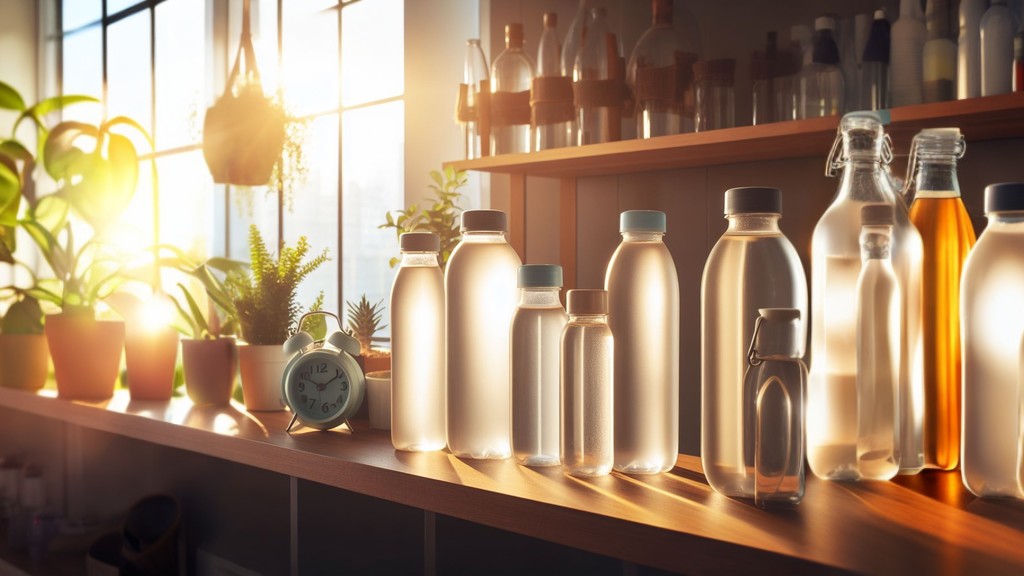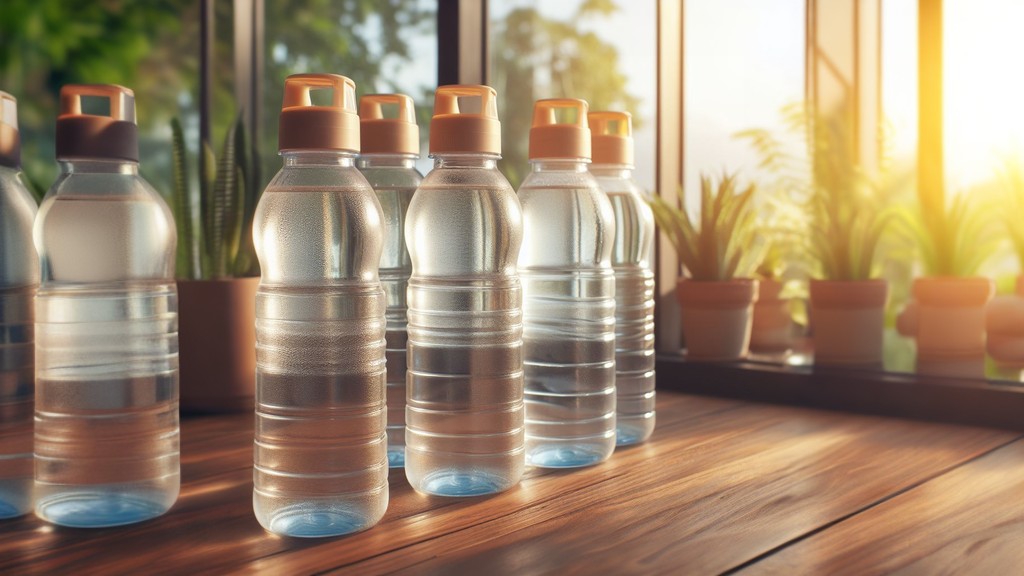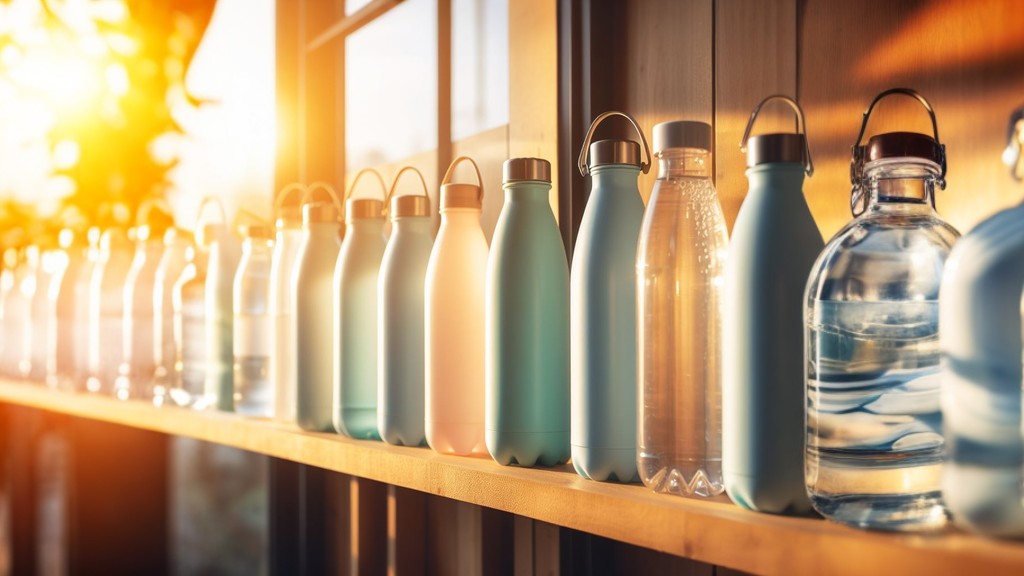BPA-Free Water Bottles recent years, the conversation around Bisphenol A (BPA) and its potential health risks has sparked a growing demand for BPA-free alternatives, especially in everyday items like water bottles. In this article, we’ll delve into the world of BPA-free water bottles, exploring their significance, health benefits, and the impact on both individuals and the environment.
Table of Contents

Introduction
Definition of BPA
BPA, short for Bisphenol A, is a synthetic compound commonly found in plastics and resins. It has raised concerns due to its potential health impacts on humans.
Significance of BPA-free Products
The significance of opting for BPA-free products lies in mitigating potential health risks associated with prolonged exposure to BPA, especially in items like water bottles.
Rise in Demand for BPA-Free Water Bottles
With increasing awareness of health-conscious consumers, there has been a noticeable surge in the demand for BPA-free water bottles as an alternative to traditional plastic containers.
What is BPA?
Brief Explanation of BPA
BPA is a chemical used in the production of certain plastics and epoxy resins. It can leach into food and beverages, raising concerns about its impact on human health.
Common Products Containing BPA
BPA is commonly found in various everyday items such as plastic containers, food packaging, and even the lining of canned goods.
Health Concerns Associated with BPA
Research has linked BPA exposure to potential health issues, including hormone disruption, reproductive problems, and an increased risk of certain diseases.
Importance of BPA-Free Water Bottles
Health Benefits
Opting for BPA-free water bottles can contribute to reduced exposure to harmful chemicals, promoting better overall health.
Environmental Impact
Choosing BPA-free alternatives aligns with eco-friendly practices, reducing the environmental footprint associated with plastic production and disposal.
Consumer Awareness
A more informed consumer base is driving the demand for BPA-free options, pushing companies to prioritize safer and sustainable alternatives.
Choosing the Right BPA-Free Water Bottle
Materials to Look For
When selecting a BPA-free water bottle, materials like stainless steel, glass, and BPA-free plastics are among the top choices.
Brands Known for BPA-Free Products
Several reputable brands have gained recognition for their commitment to producing BPA-free water bottles, ensuring quality and safety for consumers.

Consideration of Individual Preferences
Personal preferences, such as size, design, and additional features, play a crucial role in choosing the right BPA-free water bottle for individual needs.
Advantages of BPA-Free Water Bottles
Reduced Health Risks
By eliminating BPA from daily use items like water bottles, consumers can significantly reduce their risk of potential health issues associated with chemical exposure.
Sustainability Aspects
BPA-free materials often contribute to a more sustainable lifestyle, aligning with global efforts to reduce plastic waste and promote environmentally friendly alternatives.
Enhanced Durability
Many BPA-free water bottles are designed to be durable and long-lasting, offering a practical and sustainable solution for everyday hydration needs.
Addressing Common Misconceptions
Dispelling Myths About BPA
Misconceptions surrounding BPA often lead to confusion. Clarifying these myths is essential for making informed choices about BPA-free alternatives.
Clarifying Misconceptions About BPA-Free Products
Not all BPA-free products are created equal. Understanding the nuances and differences between various BPA-free options is crucial for consumers.
Reliable Sources for Information
Educating the public on reliable sources for information helps combat misinformation, empowering individuals to make informed decisions.
How to Ensure a Water Bottle is BPA-Free
Reading Product Labels
Examining product labels for clear indications of BPA-free status is a simple yet effective way for consumers to make informed choices.
Certification Marks to Look For
Look for recognized certification marks that guarantee a product’s BPA-free status, providing an additional layer of assurance.
VIII. Trends in BPA-Free Water Bottle Industry
Innovations in Materials
Advancements in materials used for BPA-free bottles are shaping the industry, providing consumers with more choices and sustainable options.
Growing Market Demands
The increasing demand for BPA-free products has led to a surge in market offerings, reflecting a shift in consumer preferences towards healthier and eco-conscious alternatives.
Impact on the Beverage Industry
The beverage industry is adapting to the BPA-free trend, with many companies reevaluating their packaging strategies to meet consumer demands for safer and more sustainable options.
BPA-Free Bottles in Daily Life
Workplace Trends
Workplaces are recognizing the importance of employee health and are adopting BPA-free water bottles as part of wellness initiatives.
Fitness and Outdoor Activities
Fitness enthusiasts and outdoor adventurers are embracing BPA-free bottles for their durability and health-conscious design, making them a staple in active lifestyles.
Educational Institutions Adopting BPA-Free Alternatives
Schools and universities are making the switch to BPA-free options in cafeterias and vending machines, promoting a healthier environment for students.
Environmental Impact of BPA and BPA-Free Alternatives
Disposal of BPA-Containing Products
Proper disposal of BPA-containing products is crucial to prevent environmental contamination. BPA-free alternatives offer a greener solution with less impact on ecosystems.
Eco-Friendly Options for Consumers
Choosing BPA-free water bottles contributes to a reduction in plastic waste, aligning with the global push towards eco-friendly choices and sustainable living.
The Role of Businesses in Sustainability
Companies adopting BPA-free practices contribute to broader sustainability goals, reducing their carbon footprint and demonstrating a commitment to environmental responsibility.
BPA-Free Water Bottles vs. Traditional Bottles
A Comparison of Materials
Contrasting the materials used in BPA-free and traditional bottles highlights the shift towards safer and more environmentally friendly options.
Long-Term Cost Considerations
While BPA-free bottles may have a slightly higher upfront cost, the long-term benefits, both health-wise and environmentally, often outweigh the initial investment.
User Experiences and Testimonials
Real-world experiences and testimonials from individuals who have made the switch to BPA-free bottles provide valuable insights into the benefits and satisfaction associated with the change.
Challenges in the BPA-Free Industry
Overcoming Manufacturing Obstacles
The transition to BPA-free production isn’t without challenges, with manufacturers navigating obstacles in materials, costs, and production processes.
Public Awareness Challenges
Educating the public about the importance of BPA-free choices and dispelling myths presents an ongoing challenge, requiring continuous efforts from both businesses and health advocates.
Benefits for Businesses Going BPA-Free
Meeting Customer Demands
Businesses that embrace BPA-free alternatives demonstrate responsiveness to customer concerns, enhancing brand loyalty and attracting health-conscious consumers.
Positive Impact on Brand Reputation
Aligning with sustainability and health trends positively impacts a company’s reputation, fostering a positive image among consumers and stakeholders alike.
Aligning with Global Sustainability Goals
By adopting BPA-free practices, businesses contribute to global sustainability goals, playing a role in reducing plastic pollution and promoting a healthier planet.
Conclusion
Recap of Key Points
In summary, the shift towards BPA-free water bottles is rooted in the desire for healthier choices and a more sustainable future. The importance of understanding BPA, choosing the right bottle, and dispelling misconceptions cannot be overstated.
Encouraging the Adoption of BPA-Free Alternatives
Encouraging individuals, businesses, and institutions to adopt BPA-free alternatives is not just a personal choice but a collective responsibility towards a healthier environment and population.
Final Thoughts on the Future of BPA-Free Products
As we look to the future, BPA-free products are poised to play a significant role in promoting health, sustainability, and responsible consumer choices. The ongoing commitment to research, innovation, and public awareness will continue to drive positive change.

Frequently Asked Questions (FAQs)
- Are all plastic water bottles BPA-free?
- Not necessarily. It’s crucial to check the product label for BPA-free indications, as some plastic bottles may still contain BPA.
- Can BPA-free bottles be recycled?
- Yes, many BPA-free materials are recyclable. However, to guarantee correct disposal, it’s imperative to adhere to local recycling regulations.
- Do BPA-free bottles affect the taste of water?
- Generally, BPA-free materials do not affect the taste of water, providing a clean and refreshing drinking experience.
- Are BPA-free bottles suitable for hot beverages?
- Some BPA-free materials are designed for hot beverages, but it’s advisable to check the manufacturer’s recommendations to ensure safety.
- Where can I find reliable information about BPA and BPA-free products?
- Reliable sources include official health organizations, product certifications, and reputable brands known for transparent information.